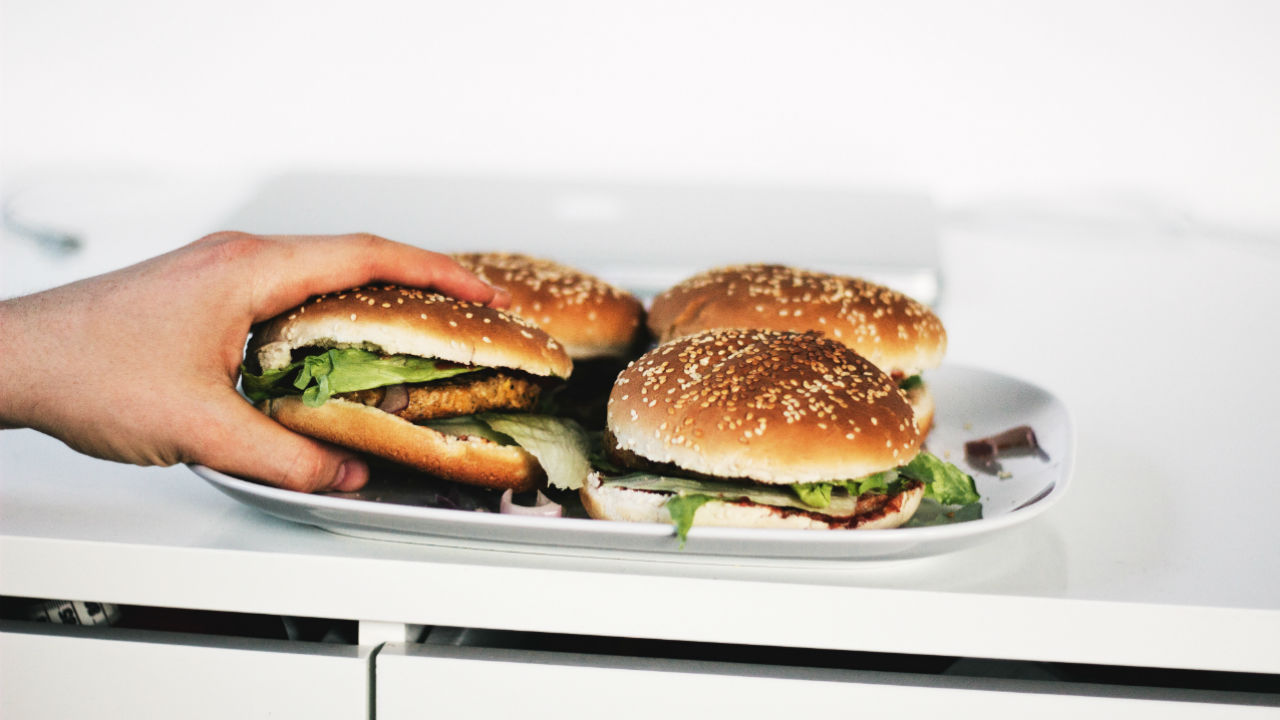
Hello everyone,
Since I have a thyroid issue I am always reading up on how we can help keep our thyroids healthy. Iodine has been shown to be crucial to the health of the thyroid, and I know that you can buy iodized salt at the grocery store and that some foods contain it and of course multivitamins can have it too.
So here's my question that I'm hoping you can help me with--do processed foods and/or fast foods contain iodized or non-iodized salt? I know they are salty, that's for sure! But is it at least the iodized form that will help our thyroids? I'm not sure if there's a cost difference between the two that would factor in.
It would be great if we could have an idea of how much iodine we were getting in our daily diets and if processed foods contain it then we might be getting more than we realize. Does anyone know? Thanks so much, Michelle
All user-generated information on this site is the opinion of its author only and is not a substitute for medical advice or treatment for any medical conditions. Members and guests are responsible for their own posts and the potential consequences of those posts detailed in our Terms of Service.




Add a Comment27 Comments
Sea Salt already contains iodine, thyroid cancer patients on the low iodine diet are told to stay away from sea salt and fish.
December 27, 2010 - 4:24pmThis Comment
Thank you so much Diane for doing such an AMAZING amount of research on my iodine question. Wow!! I really think you deserve to treat yourself to a nice dinner out or some kind of yummy goodie for being on hold with the FDA for 30 minutes. You rock!
The information that you found out is really fascinating isn't it? I had no idea at all about the salt in processed foods being considered a "finished food". And I didn't realize that this means it does not have to be labeled any further. This really makes you think, doesn't it?
It's also good to know that our iodized salt that we buy at the supermarket loses its potency after awhile.
Alison, I agree with you--it is frustrating to me too that companies can dump tons of sodium in their foods and not even make the effort to have it be iodized. Even though it was hard for Diane to get a firm answer on this, it sounds like this is the case at least some of the time. I'm going to check tomorrow at the supermarket on the price of regular versus iodized salt. My guess it's the same.
Thank you again for your incredible research Diane! You really went above and beyond the call of duty getting all of this information. It sounds like a topic that we'll want to visit again. Big hugs, Michelle
August 13, 2009 - 9:42pmThis Comment
Diane,
August 13, 2009 - 12:53pmInteresting! Thanks for going through all of the time & energy to research this topic. I have been purchasing Celtic sea salt recently, as it contains more trace minerals (and, I assumed that it contains iodine). I will look at the ingredients list, and I am also surprised by the processed foods that they contain SO much salt and it is not even iodized salt?! That is frustrating...these processed foods really do not provide any nutrients.
This Comment
I have an iodine allergy. I hope they do not make iodized salt mandatory in the food industry. I already have a hard time finding anything on the menu I can have.
June 10, 2012 - 10:02pmThis Comment
I have an iodine allergy. I hope they do not make iodized salt mandatory in the food industry. I already have a hard time finding anything on the menu I can have.
June 10, 2012 - 9:58pmThis Comment
Well. What a great question this is, and I'd have never thought it would be so hard to find an answer!
Here's how a very nice woman at the FDA explained it to me (after a 30-minute wait on hold! Those people are busy!):
The only time when salt is required to actually identify itself as iodized or not-iodized is when it is just being sold as salt. Salt is a "finished food," according to the FDA. It's an end-product.
But when you buy, say, a cake mix, in which the salt is not a "finished food" itself but is just an ingredients, the FDA says it's just supposed to be labeled "salt." Whether it's iodized or non-iodized, it's supposed to be called salt.
Interestingly, there is what appears to be a citizens' petition docket that perhaps requests more accurate identification of salt. It's Docket 2007P-0187 "Requirements of Iodized Salt on Ingredient Labels" apparently filed by a J. Shingara, but there's no link to click on and the very nice woman on the phone couldn't give me any more information on it. I imagine J. Shingara is someone just like you or me, wishing she or he knew the iodine content of foods from their labels. Her or his petition falls in the middle of May on this page, with a "Pending" after it:
http://www.fda.gov/RegulatoryInformation/Dockets/ucm090519.htm
I asked the nice woman (who wouldn't give me her name) specifically about such things as frozen foods and fast foods, and she said there is no regulation about which salt companies must use and that the only way to tell which sort of salt was being used was to call each company. (That will only take us a hundred years!)
Interestingly, a 2008 study published in the American Chemical Society's Environmental Science & Technology journal says that we may not be getting as much iodine from table salt as we believe:
"Researchers tested 88 samples of iodized salt and found that 47 did not meet the FDA’s recommended level. In addition, amount of iodine varied in individual packages and brands of salt."
Here's that link (it annoyingly does not name the troublesome salt brands):
http://www.sciencedaily.com/releases/2008/02/080204090923.htm
And here's the entire article, if anyone would like the more medical format:
http://pubs.acs.org/doi/abs/10.1021/es0719071
In the full-form article, it actually does give us an answer about fast-foods and processed foods:
"Contrary to popular belief, the vast majority of salt in the U.S. diet is not iodized. Approximately 70% of the salt is used commercially − virtually none of the salt used by the pre-prepared or the fast food industry is iodized. Approximately 70% of the remaining 30%, sold to consumers in grocery stores, is iodized, representing one-fifth of the total salt consumed (14, 71). Others have recognized the emerging iodine deficiency issue (72, 73). Satin (73) suggested that the restaurant/food service trade must demand and use iodized salt so that meals consumed away from home provide the same iodine level as at home. If all salt was iodized, a 5-fold increase in iodine intake can occur without increasing salt intake. Whether consumer demand can persuade the food industry to do so or legislation is needed is not a scientific issue. A large number of countries have chosen the route of mandatory universal salt iodization. In the United States, an affluent country, another issue that ironically underlies the iodine gap is the unseen discrimination based on economic classes. To paraphrase Stephen (74), there is no disease worse than poverty. Consumption of prepackaged or fast food is much greater among the less affluent (75-78), leading to, and perhaps even perpetuating, the iodine gap."
So most salt in the United States is NOT iodized (including the very trendy new varieties of sea salts and kosher salts). The only salt you can truly count on is the salt you buy for your home consumption. Make sure you check the label for its iodine content (some brands actually list the amount). And when it gets old, toss it. There IS a difference between fresh salt and salt that's been exposed to heat, light, and humidity over time.
Many countries require all their salt to be iodized. But the woman at the FDA said "labeling issues" are not nearly as high priority as food safety issues and so on. So it doesn't seem like we'll see this as an issue in the United States anytime soon.
August 13, 2009 - 10:22amThis Comment
Iodine deficiency is related to fibrocystic disease (breast and ovarian) and prostate problems (which can lead to cancer). Since the thyroid is the master gland that regulates the water levels and therefore the fluid flow of our bodies to obtain nutrients and discard toxins, it would seem to me that it is indeed a health issue to not have access to this essential nutrient in packaged foods.
Chlorine and Flouride chemicals in our drinking water also block absorption of minerals, including iodine. That's just science. Flouride is a historical discard from metalworks plants that in the early 20th Century someone figured out would help teeth, but also will kill a small child if enough (4 oz. or less, depending on body weight) is ingested. Someone's not minding the store as far as our health is concerned. I have low thyroid at the cell level and need the kelp I take to keep things working the way they should. Also, the fibrocystic disease disappeared within a couple of weeks of beginning to take kelp (seaweed). It's just common sense.
June 29, 2010 - 7:05amThis Comment